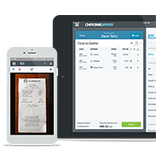Features
- Powerful capabilities
- Flexible changes
- Updates at any time
Every time a user saves an expense or invoice item, it is checked for policy compliance against a rules set. Every time an item is submitted, the routing is determined by the rules engine. Rules are customised for each organisation and can be changed as rules and policies change.
What is a business rules engine?
Simply put, the business rules engine is the air traffic control for your expense claim and invoice workflows. We build into our powerful business rules engine all of your business rules and approval routing processes. It enforces expense policies and routes expense reports and invoices for approval according to the way your business works. This is the opposite of some vendors that ask you to change your behavior to fit the way their software works.
Total business process flexibility
We give your business the flexibility to create virtually any kind of business rule; you are not dependent on a fixed set of pre-built rule types. For example, you might have a compliance rule that prohibits future dated transactions. Then you decide to modify this rule to allow for certain expenses that have future dates, but not other types of expenses. You might want to change the rule to say that this expense exception is only permitted in your North American offices or for individuals with certain titles. The rule options are limitless and flexible so they can be changed as your organisation’s business rules change. Regardless of how your business policies evolve, the business rules engine evolves with you.
Automate and eliminate manual administrative tasks
Leveraging our robust business rules engine, we offer the Chrome River Autobot within the EXPENSE routing function. The Autobot streamlines your expense reporting process by automating the manual verification and approval steps in the expense process. This innovative technology empowers your AP Team to focus on more strategic initiatives instead of manual and repetitive tasks.
Manage business rules as your organization changes
In the past there was the program and the data; now there is the application, the business rules and the data. The separation of business rules allows your business analyst to make changes to the application logic without having to turn to the developers for help. It enables solutions to change dynamically, without the delays and frustrations of waiting for software release cycles. This is the heart of modern AP automation.
We often hear from companies, “Our approval process is very complex – there’s no way you can automate it.”
We love to hear that challenge because it means one thing: the ROI and time savings will be dramatic.
In fact, here are what our customers say when we automate approval processes like this:
It is taking us just one-quarter of the time to manage the expense process than it used to.
The most impressive thing about Chrome River is that it’s highly configurable. We give you the requirements and you design the system vs. changing our business practices to fit into your software design.
People love it! People really love it! We love that there's no paper involved. We love that there's routing that we can pick. We love that there are [graphical] code buttons and not just a bunch of names to have to select from. This streamlines the process. It's excellent. I can see where expenses are all the time and even approved already. Everything about it just works.
I have never worked with a vendor that cares as much about what clients really want!
We recently began using Chrome River and it has been a BIG winner here.
